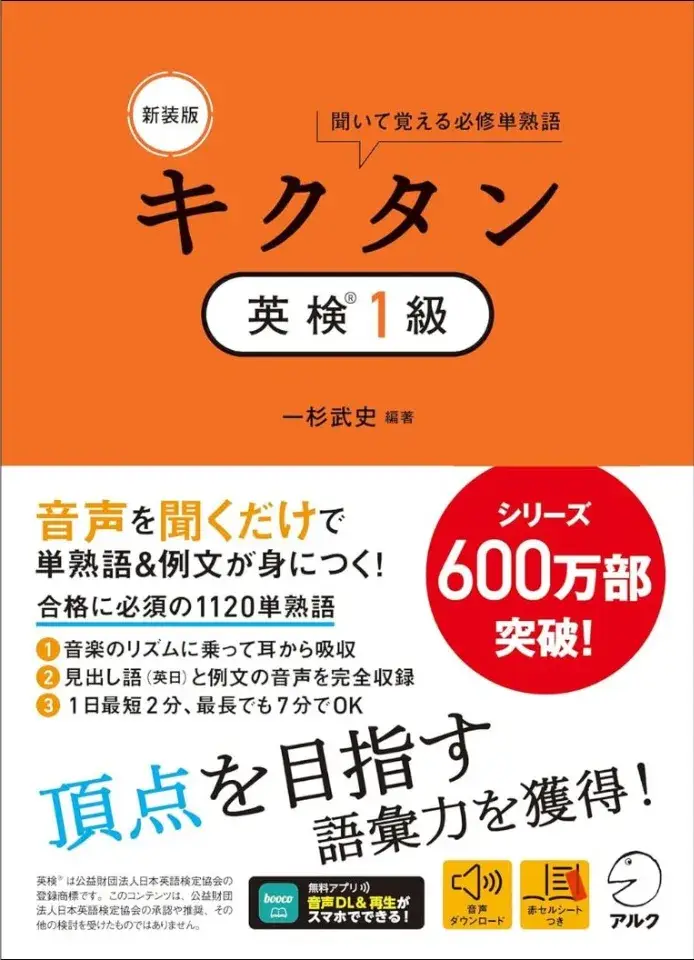
今年も残すところあと少し。昔からの習慣はすたれてきているとはいっても、まだこの時期に年賀状を書いたり大掃除をしたりする人は多いです。仕事も年内の追い込みをして、やっと落ち着けるのが大晦日の除夜の鐘のころ……なんて人もいるかもしれません。そういえば、年をまたいで鳴る108つの鐘は、なぜその数だったか……そこを見ていきましょう!
突然ですが、英語で質問!!
Why are temple bells are rung 108 times on New Year's Eve?
(なぜ除夜の鐘は108回鳴らすの?)
除夜の鐘ってどんなもの?
Most Buddhist temples start ringing their bells 108 times late on New Year's Eve and continue into the early hours of New Year's Day. Most people think that the 108 tolls of the bell symbolize the casting away of 108 earthly desires, bonnou, which are believed to cause human suffering. There are desires such as sexual appetite, materialistic desires and so on. However, there are competing explanations for why the bell is struck 108 times. Let's take a look at the three main views.
(多くの仏教寺は、大晦日の夜遅くから新年にかけて鐘を108回鳴らし続けます。108は人間を苦しめると信じられている、性欲や物欲などの煩悩の数とされていますが、他にもいろいろな説があるようです。主な3つの説を見ていきましょう)
108に関する3つの説明
1. The number of earthly desires, bonnou 煩悩の数を表す
In Buddhism, it is said that humans have six physical elements: eyes, ears, nose, tongue, body and mind. These six elements are classified into three categories: good, evil and normal, representing 18 desires. These 18 desires are classified into purified and contaminated to become 36. There are past, present and future aspects for each of those 36 desires, so the total is 108. It is said that each bell sound erases one of your 108 bonnou so that you can begin the new year feeling refreshed.
眼(げん)・耳(に)・鼻(び)・舌(ぜつ)・身(しん)・意(い)の六根が好(こう)・悪(あく)・平(へい)の3つに分類されて18となります。この18類にそれぞれに浄(じょう)・染(せん)の2つに分類され36となり、この36類が前世・今世・来世の3つにあるとして108となり、人間の煩悩の数を表すという説です。鐘を1つ突くたびに、欲望など感情の煩悩が1つ打ち消され、すがすがしい気持ちで新年を迎えられると言われます。
2. The seasonal divisions 1年間の季節の変遷を表す
The number of months, 12, is added to 24, which is the number of seasonal divisions in the solar calendar. Then a further 72 seasonal divisions that were in the ancient Chinese calendar are added. Therefore, the 108 total comes from the seasonal calendar of a year.
月の数の12、二十四節季の数の24、七十二候の数の72を足した数が108となり、1年間を表す。
3. The Struggle 四苦八苦を表す
Struggling and suffering is conveyed by the word shiku-hakku (four, nine, eight, nine: nine = ku is the homonym of ku, meaning suffering and struggling) in Japanese. The four represents four types of pain and suffering; life, age, disease, death, and the eight represents eight such types. When you multiply multiply 4×9 and 8×9 and add the results, you get a combined total of 108.
四苦八苦は四つの苦(生老病死)と八つの苦を取り払うということで、4×9 + 8×9 = 108をかけたとも言われている。
108回鐘が突かれる理由は諸説ありますが、理由はどうあれ、キンと冷たい真夜中の空気の中で、この鐘の音が響いてくると「ああ今年も終わりだな」と感慨にふけるものです。108つの煩悩を落としきって、来年もいい年になりますように。
Answer
It is said that the 108 tolls of the bell symbolize the casting away of 108 earthly desires, bonnou, and each bell sound erases one of your 108 bonnou so that you can start the New Year feeling refreshed.
ひとつには、108は人間の煩悩を表し、鐘を突くごとに煩悩が1つずつ消えて、新たな気分で新年を迎えられるようにするためだとされています。
参考:国立天文台サイト 暦計算質 こよみ用語解説/暦Wiki
※1 太陽年を日数(平気法)か太陽の黄道上の視位置(定気法)によって24等分し、その分割点を含む日に季節を表す名称を付けたもの。全体を春夏秋冬の4つの季節に分け、さらにそれぞれを6つに分けて、節気(せっき)と中気(ちゅうき)を交互に配している。
※2 古代中国で考案された季節を表す方式の一つ。二十四節気をさらに約5日ずつの3つに分けた期間のこと。 各七十二候の名称は、気象の動きや動植物の変化を知らせる短文。
boocoで読める!アルクの新刊、続々登場
語学アプリ「booco」なら、アルクのベストセラー書籍200タイトル以上が、学習し放題!
「キクタン」などアルクの人気書籍800冊以上が音声対応。「読む」に対応した書籍では、本文と音声をスマホで手軽に利用できるほか、一部の書籍では、学習定着をサポートするクイズ機能で日々の復習や力試しも可能です。さらに、Plusプランに加入すれば200冊以上の書籍が学習し放題に!
boocoの「読む」機能では、次のような使い方ができます。
① 学習したいページを見ながら音声を再生できる
② 文字サイズや画面の明るさを調整できる
③ 書籍内検索ができる
※ これらの機能には一部の書籍が対応しています。

▼「booco」の無料ダウンロードはこちらから






